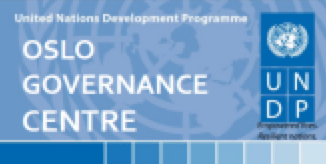 January 2016: The proposed indicators for Sustainable Development Goal (SDG) 16 do not adequately cover the Goal’s full ambition, according to participants at an Expert Meeting on Measuring SDG 16 (Promote peaceful and inclusive societies for sustainable development, provide access to justice for all and build effective, accountable and inclusive institutions at all levels). The indicators proposed by the Inter-Agency and Expert Group on SDG Indicators (IAEG-SDGs) would amount to a “setback,” said participants, who suggested additional and revised indicators for the Goal.
January 2016: The proposed indicators for Sustainable Development Goal (SDG) 16 do not adequately cover the Goal’s full ambition, according to participants at an Expert Meeting on Measuring SDG 16 (Promote peaceful and inclusive societies for sustainable development, provide access to justice for all and build effective, accountable and inclusive institutions at all levels). The indicators proposed by the Inter-Agency and Expert Group on SDG Indicators (IAEG-SDGs) would amount to a “setback,” said participants, who suggested additional and revised indicators for the Goal.
The UN Development Programme’s (UNDP) Oslo Governance Center and the Peace Research Institute Oslo (PRIO) organized the meeting, which convened from 28-29 January 2016, in Oslo, Norway, and brought together 78 representatives from National Statistical Offices (NSOs), national governments, multilateral agencies and civil society.
According to the meeting report, Goal 16’s intention to foster peaceful and just societies and inclusive and accountable institutions makes it especially important to include peoples’ voices in monitoring progress. To fulfill this aim, participants supported using survey-based evidence of “people’s own assessments.” Discussions highlighted areas requiring additional perception-based indicators, to measure whether people feel that improvements have occurred in their lives.
On Target 16.1 (Significantly reduce all forms of violence and related death rates everywhere), participants supported collecting data on the number of direct conflict-related deaths, as a proxy for the intensity and frequency of political violence, noting this indicator’s wide use by the UN, the World Bank and others. They also suggested a complimentary indicator on peoples’ sense of security and freedom from fear.
On Target 16.3 (Promote the rule of law at the national and international levels and ensure equal access to justice for all), participants supported a broader indicator than the one currently proposed, and said the indicator should focus on dispute, rather than victimization, and measure the proportion of people in a dispute who have been able to access formal, informal, alternative or traditional dispute resolution, and felt it was just. This indicator would better cover the range of situations in which ordinary people access justice and the rule of law, the report notes.
On Target 16.7 (Ensure responsive, inclusive, participatory and representative decision-making at all levels), participants proposed an indicator on electoral turnout as a share of voting-age population in national elections, and stressed that the current formulation addresses neither quality of elections nor compulsory voting. The meeting also discussed broadening the indicator on the proportion of countries that meet the needs of youth within national development plans and poverty reduction strategies, saying it should measure multiple population groups, not just youth.
On Target 16.10 (Ensure public access to information and protect fundamental freedoms, in accordance with national legislation and international agreements), participants suggested an additional or alternate indicator on fundamental freedoms, to measure the percentage of the population that believes they can express political opinion without fear. Participants also suggested including an indicator on public access to information.
The report observes that, much in the same way that indicators for measuring economic growth or poverty were once novel, indicators measuring peace, justice and accountable institutions are expected to gain acceptance and support. The report stresses that the meeting’s suggested alternative indicators “have already proven their worth in practice” through use by various UN agencies, the World Bank and NSOs, and provide a solid basis for improving coverage of “tier II” indictors and establishing a methodology for “tier III” indicators.
Tables in the report present selected targets, indicators currently considered by the IAEG-SDGs and the recommended additional or alternative indicators, as well as detailed justifications for the proposals. [Report of the Conveners] [PRIO Event Webpage] [UNDP Oslo Governance Center]